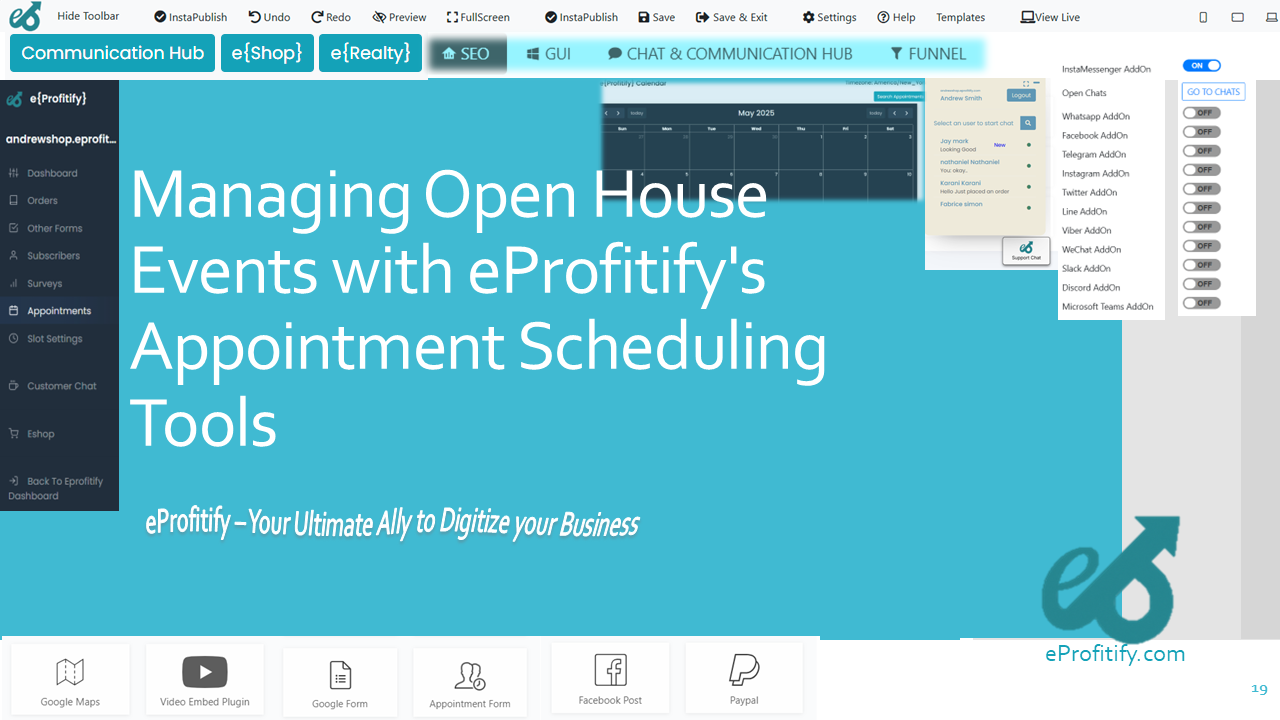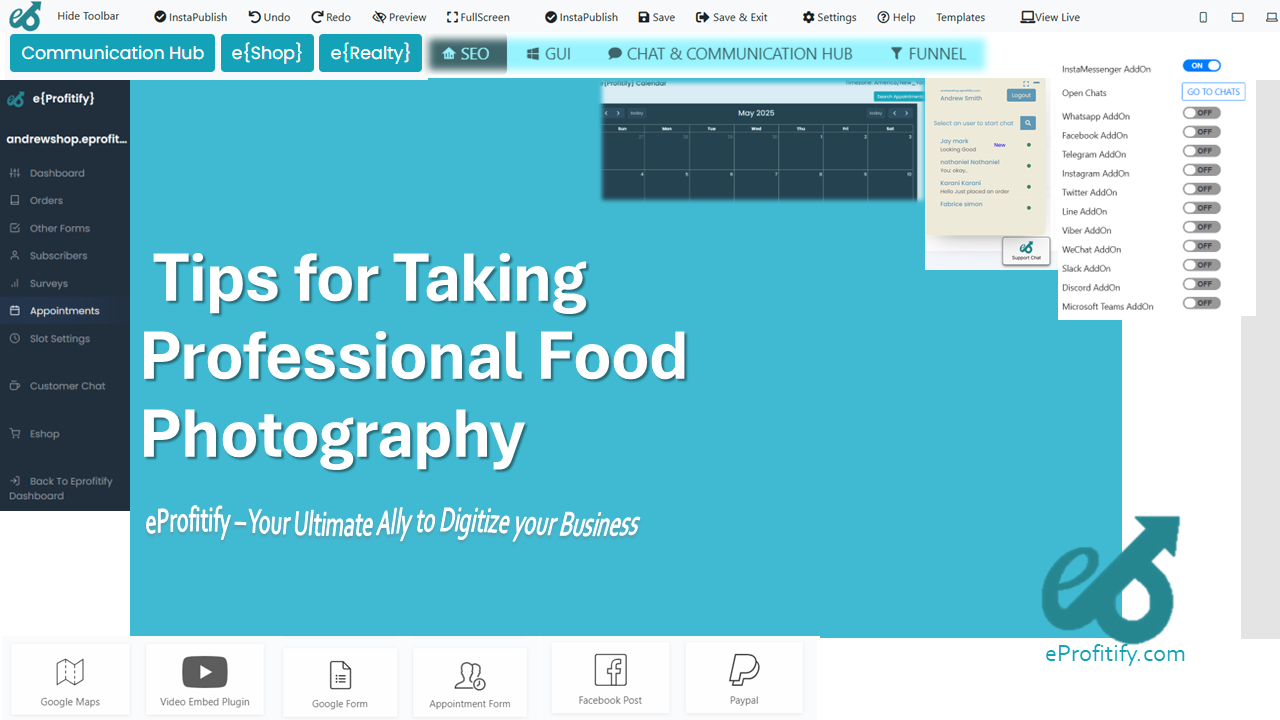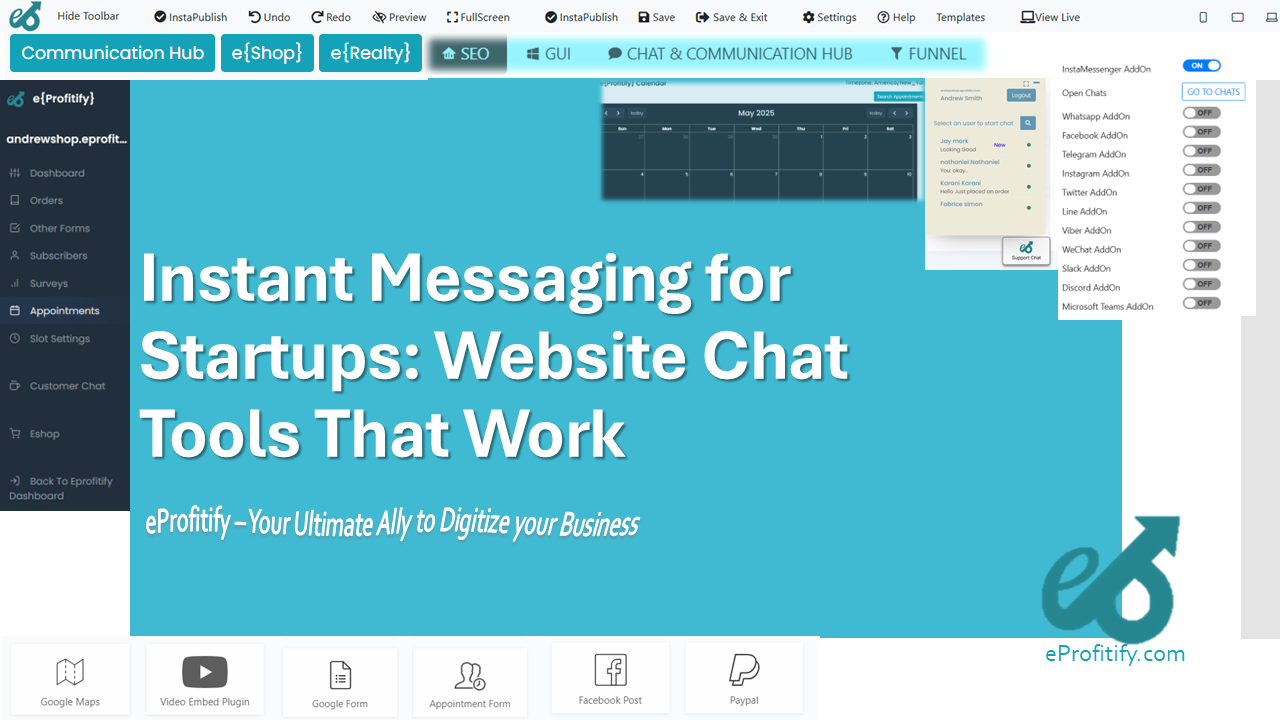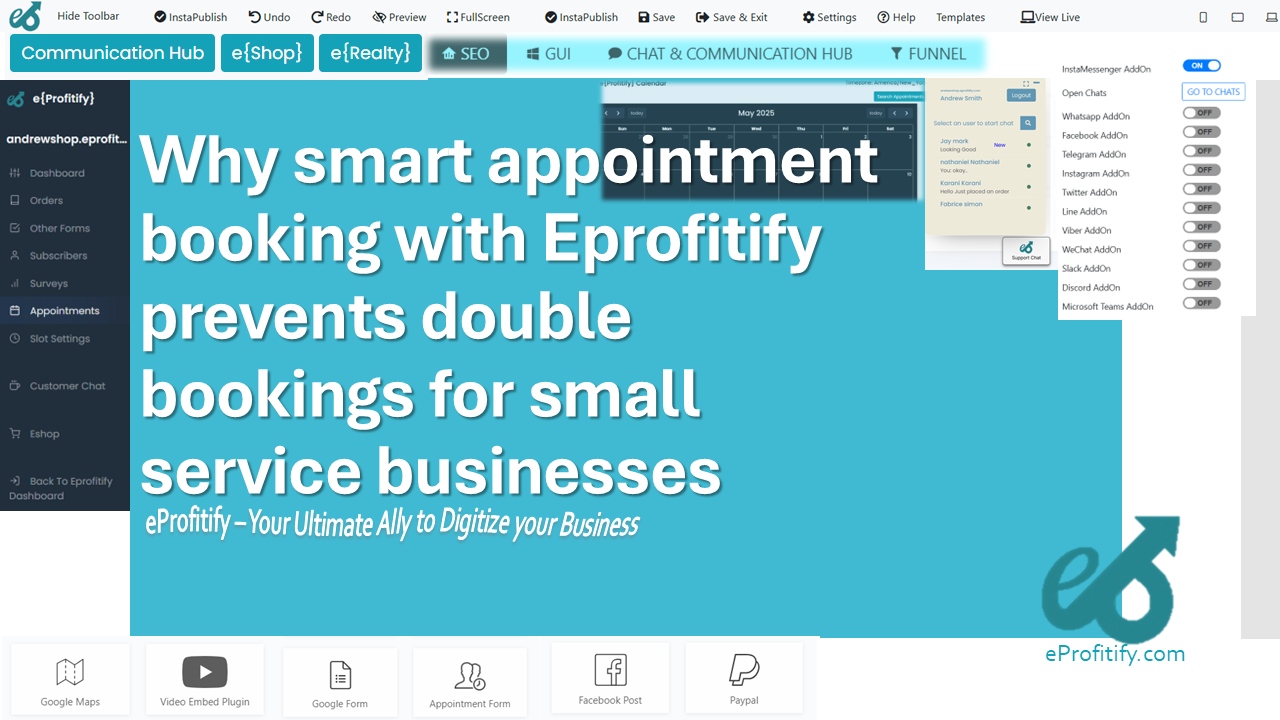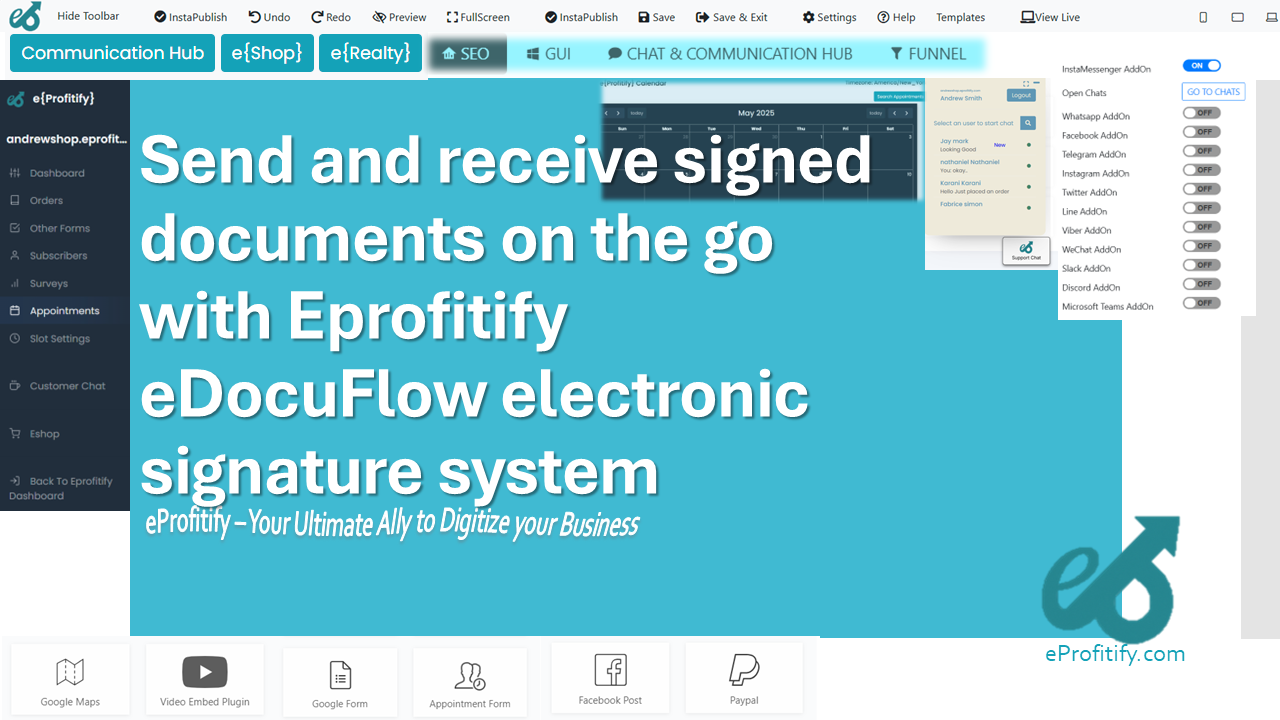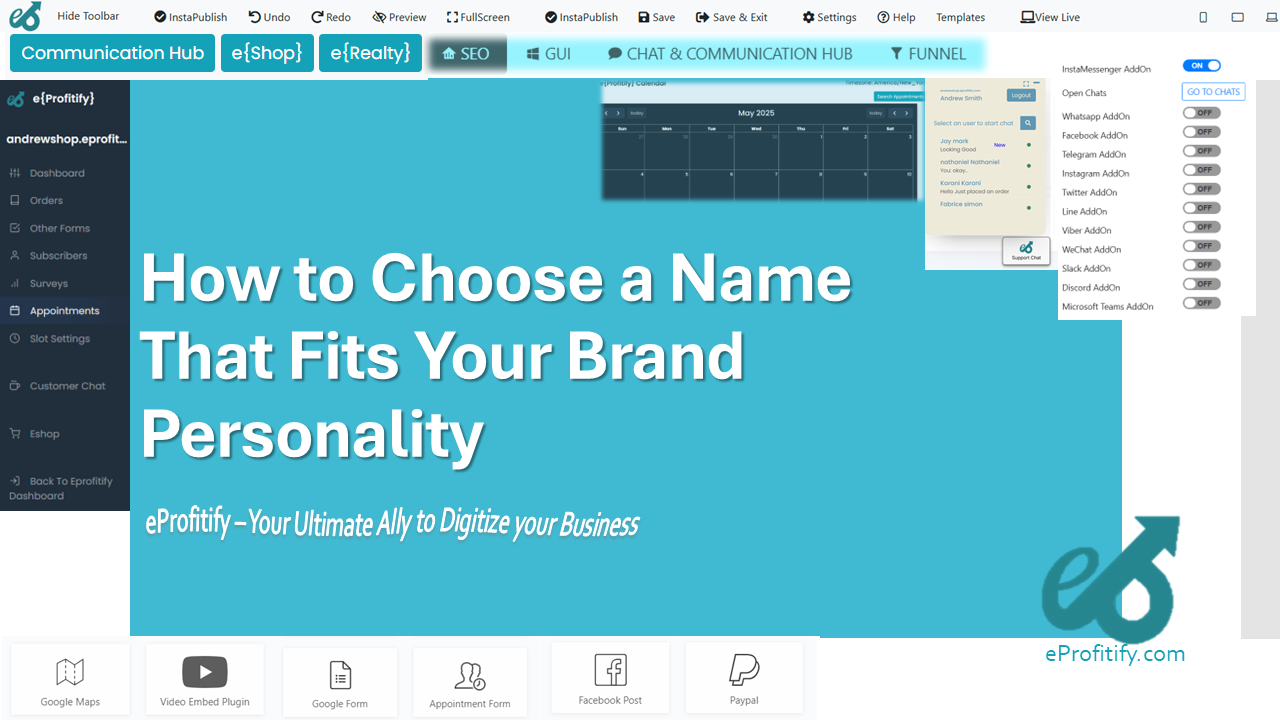How to Ask the Right Questions Before Choosing a Name
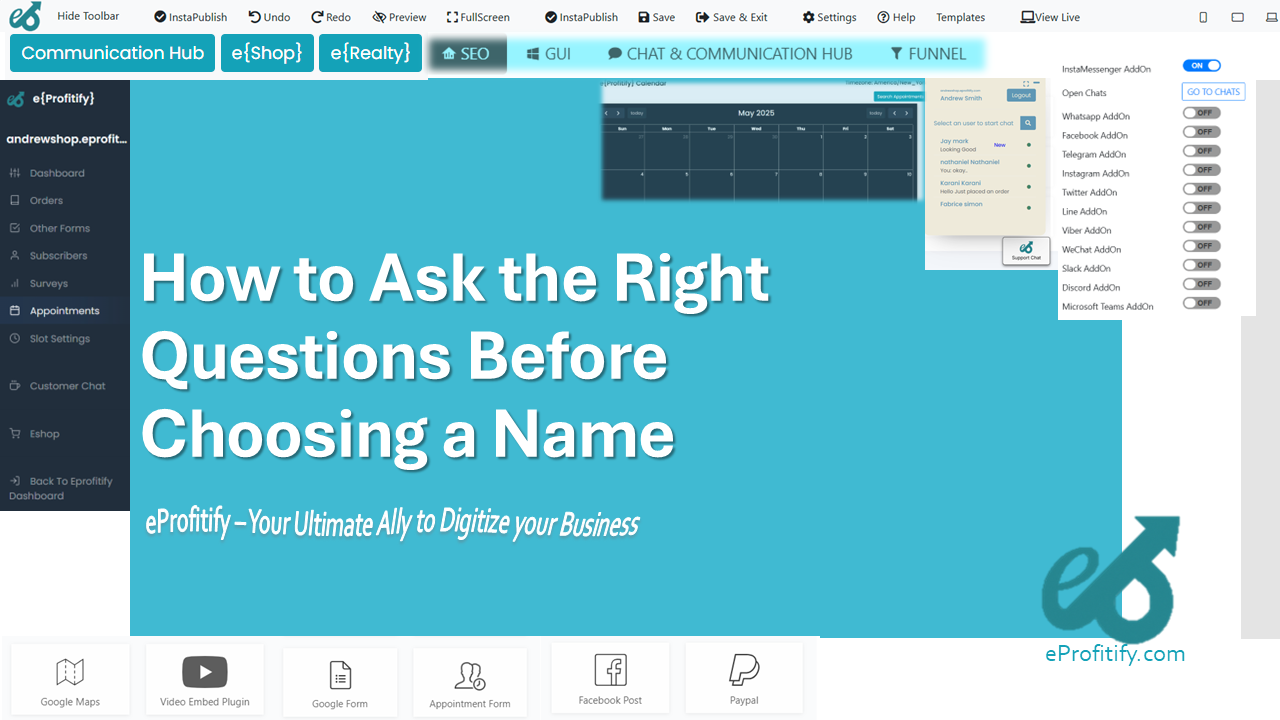
Schedule a LIVE Zoom call with an eProfitify Expert.
Choosing the right name for your business, product, or service is a critical step that can shape brand identity, customer perception, and long-term success. A poorly chosen name can lead to confusion, cultural misunderstandings, legal disputes, or lost revenue. Meanwhile, a well-researched, strategic name builds credibility and sets the foundation for growth. With tools like eprofitify—a leading website publishing and management platform offering instant messaging, appointment management, ecommerce, CRM, and other integrated tools—businesses can streamline processes related to naming research, audience analysis, and digital presence. Below, we explore key questions to ask before finalizing a name, supported by statistics and insights into how platforms like eprofitify simplify the journey.
1. Does the Name Align with Your Brand’s Purpose and Values?
A name should reflect your brand’s mission, tone, and offerings. For example, “Starbucks” evokes coffee culture, while “Patagonia” aligns with outdoor adventure and environmental stewardship. According to a 2022 Shopify study, 77% of consumers buy from brands that share their values, highlighting the importance of thematic alignment. Use eprofitify’s analytics tools to research industry trends and competitor names. Its CRM module helps evaluate how well your shortlisted names resonate with your core messaging.
2. Will It Resonate with Your Target Audience?
A name must appeal to your audience’s preferences and demographics. For instance, millennials and Gen Z favor playful, memorable names like “TikTok” or “Slack,” while B2B clients may prefer professional-sounding titles. A 2023 HubSpot report found that 72% of customers engage more with brands that personalize their experience. eprofitify’s audience segmentation tools and instant messaging features allow real-time feedback collection, ensuring your name aligns with customer expectations.
3. Is the Name Legally Available and Unique?
Legal conflicts over trademarks can derail a brand. The U.S. Patent and Trademark Office reported a 6.3% rise in trademark applications in 2023, underscoring the competitive landscape. Conduct thorough trademark searches using government databases or tools integrated into platforms like eprofitify, which offers compliance checks to avoid naming conflicts.
4. Does It Avoid Cultural Misinterpretations?
A name that works in one language or region might offend in another. When Chevrolet launched the “Nova” in Latin America, they overlooked that “no va” translates to “doesn’t go” in Spanish. A 2021 survey by Global Lingo found that 43% of rebranding efforts stem from cultural missteps. Use eprofitify’s global customer insights and CRM data to test names across diverse focus groups.
5. Is the Domain Name Available?
Your online presence hinges on a matching domain. Over 366 million domain names were registered as of 2023 (Verisign), making availability a challenge. eprofitify’s domain search tool simplifies this process, offering instant checks and alternatives. A matching domain improves SEO; 75% of users judge credibility based on website design (Stanford University).
6. Is the Name Scalable?
A name should grow with your business. Startups like “Amazon” (originally an online bookstore) chose broad names to accommodate expansion. In contrast, 22% of startups rebrand within three years due to narrow names (2022 FinancesOnline data). eprofitify’s ecommerce and appointment management systems let you test the versatility of your name across future services.
7. Does It Stand Out in Voice Search and Social Media?
With 50% of searches being voice-based (Google, 2023), names must be easy to spell and pronounce. Social media handles also matter—brands with consistent usernames see 23% higher engagement (Sprout Social, 2022). eprofitify’s social media integration helps secure uniform handles and optimizes names for voice search.
Conclusion
Naming a brand requires balancing creativity, strategy, and practicality. Tools like eprofitify streamline this process through features like CRM, domain management, and audience analytics, ensuring your name is memorable, legally sound, and future-ready. By asking the right questions—and leveraging data-driven insights—businesses can turn a simple name into a powerful asset.



